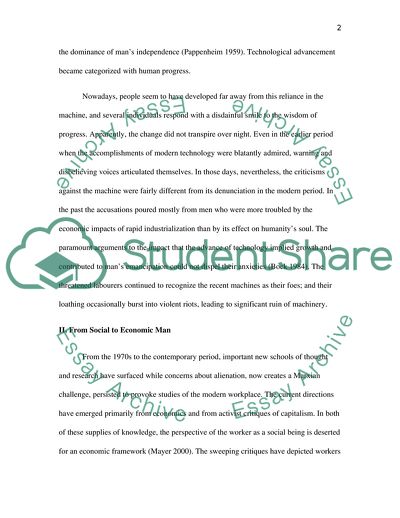Cite this document
(Marxian Alienation and the Modern Workplace Assignment, n.d.)
Marxian Alienation and the Modern Workplace Assignment. https://studentshare.org/sociology/1717761-the-meaning-of-work-in-the-modern-corporation-can-best-be-described-as-one-of-alienation
Marxian Alienation and the Modern Workplace Assignment. https://studentshare.org/sociology/1717761-the-meaning-of-work-in-the-modern-corporation-can-best-be-described-as-one-of-alienation
(Marxian Alienation and the Modern Workplace Assignment)
Marxian Alienation and the Modern Workplace Assignment. https://studentshare.org/sociology/1717761-the-meaning-of-work-in-the-modern-corporation-can-best-be-described-as-one-of-alienation.
Marxian Alienation and the Modern Workplace Assignment. https://studentshare.org/sociology/1717761-the-meaning-of-work-in-the-modern-corporation-can-best-be-described-as-one-of-alienation.
“Marxian Alienation and the Modern Workplace Assignment”. https://studentshare.org/sociology/1717761-the-meaning-of-work-in-the-modern-corporation-can-best-be-described-as-one-of-alienation.


